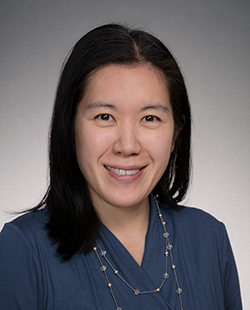Denise Chang, MD completed her medical degree at the University of Iowa and then went on to complete residency training in psychiatry at the University of Washington. She then did further training as a Psychosomatic Medicine Fellow, also at the University of Washington, and this is where she had her first experience working in collaborative care, doing a rotation with Dr. Anna Ratzliff. Following fellowship, she joined the faculty working in the Behavioral Health Integration Program, which at the time was a new collaborative care initiative at the University of Washington, working in primary care clinics providing mental health consultation.
She has helped launch two collaborative care programs, one in the UW Neighborhood clinic system and another at a primary care site within UW Medicine. For ICTP, she organizes the clinical rotations for the fellows as well as helps provide support to the clinical faculty that supervise the fellows.She also works on quality improvement projects within collaborative care as well as helping the fellows learn about quality improvement.
Dr. Chang believes that her most important work is ensuring patients are receiving quality mental health care and promoting collaborative care as a means to improving access to mental health to all patients. She hopes that in the future, that there will be improvements in our health care system to allow for even more efficient use of our mental health resources, and to improve access to that care so that more patients are being reached, leading to improved clinical outcomes.
